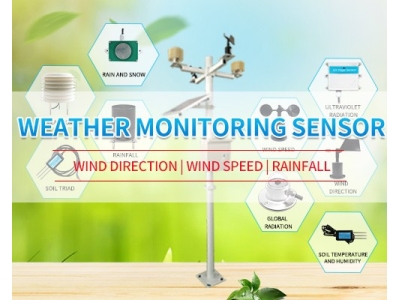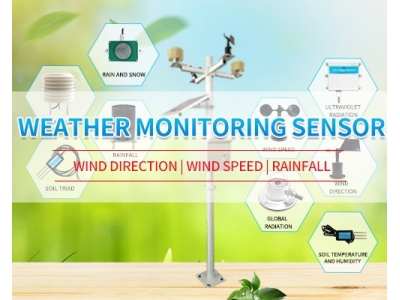Smart irrigation techniques are revolutionizing the way farmers manage their crops. By using sensors, weather data, and other information, these systems can optimize watering schedules, reduce water usage, and increase crop yields. One of the key components of smart irrigation techniques is the use of weather stations to gather meteorological data.

Weather stations are devices that measure various weather parameters, such as temperature, humidity, wind speed, and precipitation. They can be installed on farms or in nearby areas to provide real-time data on weather conditions. This data can then be used to inform irrigation decisions and optimize crop production.
One of the main benefits of weather stations in smart irrigation techniques is that they can help farmers to adjust their watering schedules based on changing weather conditions. For example, if a weather station detects that it has rained recently, the smart irrigation system can delay watering until the soil has dried out. This can help to prevent overwatering and reduce water usage.
Weather stations can also help farmers to plan their irrigation schedules in advance. By analyzing historical weather data, farmers can determine the best times to water their crops based on the expected weather conditions. This can help to ensure that crops receive enough water without wasting resources.
In addition to optimizing watering schedules, weather stations can also help to prevent crop damage from extreme weather events. For example, if a weather station detects that a frost is likely to occur, farmers can take steps to protect their crops, such as covering them with blankets or using heaters to keep them warm.
Another benefit of weather stations in smart irrigation techniques is that they can help farmers to adapt to climate change. With changing weather patterns and increasing droughts, farmers need to be able to adjust their irrigation practices to ensure that their crops receive enough water. Weather stations can provide real-time data on soil moisture levels, temperature, and other factors, allowing farmers to make informed decisions about when and how much to water their crops.
Overall, weather stations play a crucial role in smart irrigation techniques. By providing real-time data on weather conditions, they can help farmers to optimize their watering schedules, prevent crop damage, and adapt to changing climate conditions. As smart irrigation techniques continue to evolve, weather stations will become even more important in ensuring that we can continue to feed a growing population while conserving our natural resources.






